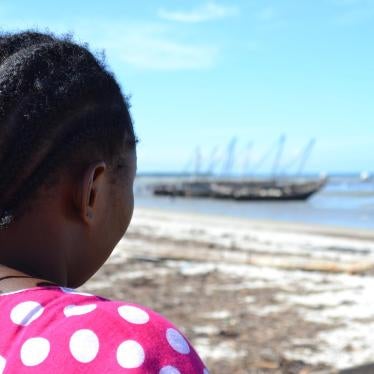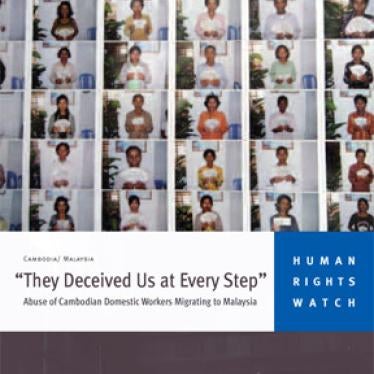Just yesterday, we sat down with activists from Haiti concerned about the impact that badly regulated mining could have on their communities’ already poor access to safe drinking water. Communities around the world face similar problems, and with more industrial development, the problems will increase.
Sunday is World Water Day, with a theme of “water for sustainable development.” But as the United Nations works to set global development goals for the next 15 years, most discussion in UN and donor circles focuses on the need for water to succeed in sustainable development. Largely missing from these discussions is how poorly regulated development – often heavy industry and mining – may threaten water for drinking. Looking at these issues with a human rights lens exposes underlying issues of poor governance, discrimination, and corruption, as well as a lack of accountability.
In December, Human Rights Watch exposed the polluted drinking water and resulting health problems in the small indigenous community of Klity Creek in northern Thailand, where the water was contaminated by lead from a badly regulated and now defunct factory upstream. Despite a Thai Supreme Court order two years ago, the government has yet to begin a proper cleanup of the creek.
In Bangladesh, Human Rights Watch has reported on the unregulated leather tanneries in Dhaka, which release untreated waste and 40,000 tons of toxic chemicals into the capital city’s main river – in which thousands of people bathe or use to irrigate their crops. Despite serious skin diseases and respiratory illnesses among local residents, the government refuses to implement a 2001 High Court order to move the tanneries outside the city.
UN discussions rightly praise the fact that over two billion people have gained access to improved sources of drinking water since 1990. But simple access doesn’t mean countries have met their international obligations. People need information about how development projects may threaten their drinking water and what steps governments and businesses are taking to prevent industrial contamination or over-extraction, and they need timely remedies when water is no longer safe. Businesses also have a responsibility to prevent and remedy abuses. The World Bank and other donors need to prevent their investments from harming the water supply.
So focusing on sustainable development this World Water Day needs to be more than about making sure the glass of water is half full, it’s about making sure the glass is clean.










